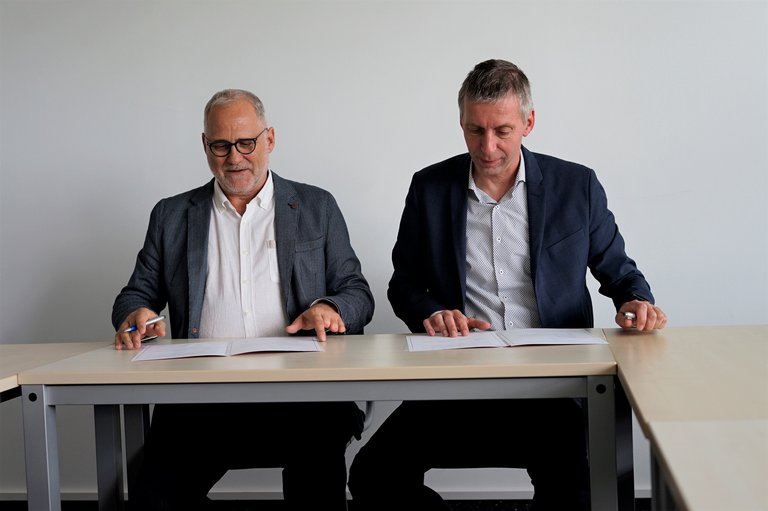There is a growing shortage of teachers in Germany, and the shortage is hitting vocational schools particularly hard: At vocational schools and vocational high schools alone, more than 10,000 positions are currently unfilled. This is because, unlike at general education schools, vocational school teachers must have special expertise in mathematics and technology. With a bachelor's degree program with a teaching option for vocational schools and a cooperation with the State Vocational School Center Arnstadt-Ilmenau (SBSZ), the TU wants to do its part to solve the problem.

Vocational schools are of great importance, especially in the STEM sector: They are the ones that train the urgently needed skilled workers for trade and industry. However, the nationwide shortage of teachers is not stopping at vocational schools. On the contrary, according to the Federal Association of Teachers for Vocational Education and Training (BvLB), between 10,000 and 15,000 positions are currently unfilled at vocational schools alone. At the Arnstadt-Ilmenau State Vocational School Center (SBSZ), where 85 teachers look after around 1,250 students, things are currently looking comparatively good. But here, too, many teachers will be retiring in the coming years - and qualified teachers for education in the mathematical-technical field are urgently needed: "We have to make sure that we attract young talent here in Thuringia," says Thomas Bohm, principal of the SBSZ. "Other federal states won't give us the teachers because there is a shortage of teachers there, too."
But the job profile of vocational school teachers in particular is not particularly well-developed: "Anyone who thinks of the job profile of a teacher currently tends to think of elementary schools or high schools," also knows Vice President for Studies and Teaching Prof. Anja Geigenmüller. This exacerbates the problem:
As a university, we would like to do our part to solve this problem by preparing young people for a career as a vocational school teacher with the two-subject bachelor's degree in vocational education - and by bringing a new, strong partner on board in the form of the SBSZ.
The "polyvalent bachelor's degree with teaching option for vocational schools" not only provides students with the necessary scientific knowledge in the first subject of metal technology or electrical engineering and in the second subject of mathematics. Those who wish to do so can follow this up with a Master of Education for the teaching profession at vocational schools at the University of Erfurt, which gives them the pedagogical and didactic tools they need to teach the subject matter. After the master's degree, as in other teaching professions, students begin their traineeship at a vocational school. The aim of the program is to train students to become teachers at vocational schools: as teachers of electrical engineering or metal technology at a vocational school, a technical high school or a vocational remedial school, or as teachers of mathematics at a vocational high school. Alternatively, graduates with a bachelor's degree can also pursue a master's degree in engineering.
"Familiarizing students with the other side of the teaching profession"
Now the TU Ilmenau wants to go one step further and enable students to gain fundamental didactic experience already during their bachelor's studies - and thus facilitate career orientation: "This requires strong cooperation partners such as the State Vocational School Center Arnstadt-Ilmenau, which both accompanies the development of the course and helps to provide practical experience," says the vice president. Together, the SBSZ and the university want to give students insights into the teaching profession. Principal Thomas Bohm:
We don't want to prejudge any education in the educational sciences, but rather make it possible for prospective students and students to become familiar with the other side of the teaching profession: To get to know parenting, to analyze curricula, to visit classes, but also to visit companies and to get to know our inter-company training partners - and then, at the end, to hold a lesson of your own.
In the future, such teaching and internship units at the SBSZ will also be recognized as study credits.
But the transition from vocational high school to university is also to be better coordinated through study and career-orientation measures, and teaching in the STEM field is to be further improved through continuing education and collegial exchange. In addition, the TU Ilmenau and the SBSZ want to bundle their communication activities in order to raise awareness of the teaching profession in vocational schools and thus inspire even more young people to pursue this career.
Contact
Prof. Anja Geigenmüller
Vice President for Teaching and Learning

